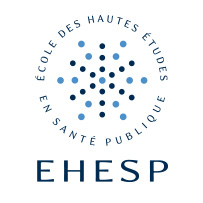Staying active during Covid-19 crisis: why it would have been important to keep public parks opened
Résumé
BackgroundIn 2020, the Covid 19 pandemic and associated restrictions, including limited access to public urban green space (UGS), have led to a decrease in the ability of city dwellers to engage in physical activity. In France, more than 52% people reported being physically active in urban parks. Based on the GREENH-City research carried out in cities of the French network of WHO healthy cities, this presentation aims to show that UGS, depending on different drivers, can support a wide variety of physical activities, but also offer multiple other functions that contribute more or less directly to the health of the population.MethodsA qualitative survey was conducted among users of 3 different parks in each of the 6 selected cities with both observations and semi-directive interviews and a thematic analyzes were performed. Observed activities were classified into 8 groups including physical activity (non-sport, sports). Interview's analysis aimed to describe the reasons for coming and the type of activity made.Results186 observations and 591 recorded and unrecorded interviews with individuals or groups were conducted in the 18 parks. 24 types of physical activity have been described as possible uses of UGS. The most important, regardless of UGS location, is children activities in playgrounds. The most common activities are walking (with a social function) and jogging (individual function). Proximity and the accessibility are two reasons for use.ConclusionsUGS are an open access amenity for physical activities. From a social justice perspective, policy makers should ensure that every neighborhood is sufficiently close to an UGS. In addition to promoting physical activity, UGS also serve an important social function and impact the collective physical and mental health of the population in many other ways (e.g., as environmental risk regulators). Their coping role during crisis for population would worth to be studied further.
| Origine | Fichiers éditeurs autorisés sur une archive ouverte |
|---|

